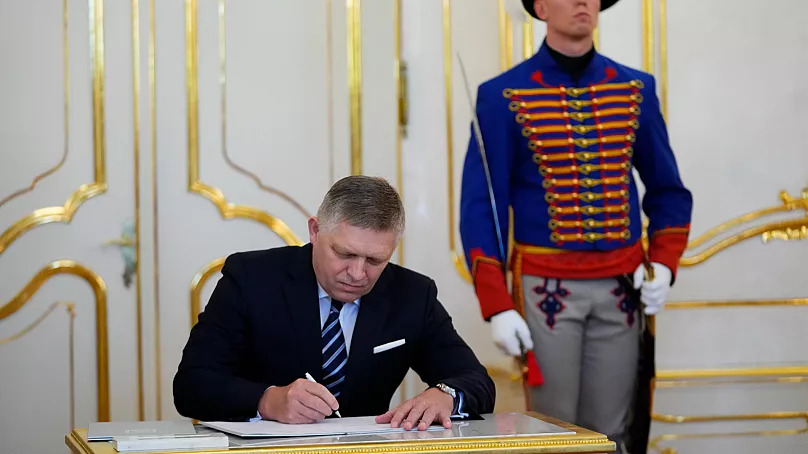Slovakia’s newly appointed Prime Minister, Robert Fico, has taken office for the fourth time amidst promises to prioritize Slovakian interests, reduce military aid to Ukraine, and curb immigration. His nationalist stance raises concerns among EU leaders regarding potential obstructionist policies.
Fico’s Election Victory
- Fico’s Smer party won last month’s elections, forming a coalition government with Hlas and the ultra-nationalist Slovak National Party (SNS).
- This alliance caused their suspension from the socialist group in the European Parliament.
Foreign Policy and EU Relations
- Fico advocates for humanitarian aid to Ukraine but opposes further military assistance and sanctions on Russia. He also aims to establish peace talks, aligning with Hungary’s leader Viktor Orbán.
- Despite his nationalist stance, Fico asserts Slovakia’s commitment to remain in the EU and NATO.
Domestic Implications
- Analysts fear Fico’s illiberal rhetoric might impact LGBTQ+ rights, rule of law, and public scrutiny within Slovakia.
- However, the government’s slim parliamentary majority and economic dependence on EU funding could limit extreme policies.
Potential EU Summit Agenda
- During the upcoming EU summit, EU leaders are expected to address challenges related to continued support for Ukraine and the bloc’s immigration policies.
- Fico’s stance could influence these discussions and impact EU unity on these critical issues.




 India and Israel Begin First Round of FT...
India and Israel Begin First Round of FT...
 India Holds Spot as No. 2 Buyer of Russi...
India Holds Spot as No. 2 Buyer of Russi...
 PM Modi’s Historic Israel Visit: First I...
PM Modi’s Historic Israel Visit: First I...








